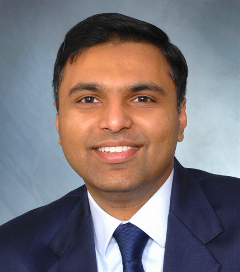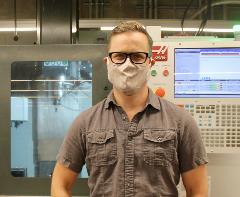Findings Staff Report | Sept. 8, 2020
The Fall 2020 semester is upon us, and not even COVID-19 can stop the University of Cincinnati from improving its ability to support its researchers and their important work—across all disciplines and corners of campus.
This month Findings is highlighting the Advanced Research Computing Center (ARCC) and the Ground Floor Makerspace + Microfactory.
Advanced Research Computing center builds capacity, staff
What is it? The ARCC, through an investment by the OoR, started as a pilot program in 2019 and offers high-performance and high-throughput computing resources for the entire research community, created for that researcher dying to ask a question of a big data set or create an algorithm to unlock a piece of research.
An equipment grant—$847,000 over the next three years—from the National Science Foundation and cost-shared with the Ohio Department of Higher Education and UC, will allow the facility to add new equipment and capabilities. This will provide UC researchers with a better opportunity to analyze, visualize, model and simulate data—and also think about applying artificial intelligence or machine learning.
ARCC is a high-performance and high-throughput computing center, composed of thousands of computer processors. Those processors are connected to each other and can divvy up and solve a problem or query significantly faster than a single processor, says Prashant Khare, Ph.D., faculty leader of ARCC. Khare is assistant professor of aerospace engineering and the principal investigator of the NSF grant.

What’s new? This funding will multiply the computational power available at ARCC by more than two-fold. These resources will help support groundbreaking discoveries and innovation by researchers across the disciplines, including basic sciences, engineering, medicine, arts, social sciences and beyond. Last year, in its pilot phase, ARCC received computing requests over 75 million CPU hours by 117 UC researchers across all colleges, emphasizing the need for such a resource on our campus. While the $857,000 will boost the equipment at the center, the OoR is planning on further investments to continue to enhance this shared resource.
“We have the potential and talent of researchers here to make this a hub for computations in the Midwest and beyond,” Khare says. “Thanks to those who have worked tirelessly on this with us.”
Tap into this resource: Visit the center’s webpage for more information and make a request to work with the center, here.
1819 Makerspace Launches Service Center to Support Research
What is it? The Ground Floor Makerspace + Microfactory is 12,000 square foot workshop for research, exploration and creation of new ideas, objects and products. The space contains roughly $1.2 million worth of equipment, such as 3D printers, CNC machines, laser and water-jet cutters, as well as equipment and tools to work on electronics, IoT, wood and metal. Membership is free and open to all current students, faculty and staff. There are fees associated with services.

What’s new? The Office of Innovation is launching the Makerspace Service Center to offer prototyping and small batch manufacturing services to researchers. While the space is closed for daily use because of the coronavirus, the machining and additive manufacturing services remain operational. Benjamin Jones, manager of the space, is excited to now be able to help researchers with their projects, start to finish.“
“Our team is available to consult at any phase of a project, from ideation, to CAD development, to design for manufacturing, and are equipped to help you speed your project to the lab or to market," Jones says. Right now, for example, working with a nursing professor, the space created kits for 220 nursing students to teach them intranasal feeding with 3D printed noses.
Tap into this resource: Visit the Office of Innovation website to learn more and activate your membership. If you’ve got an idea for your research, email makerspace@uc.edu.